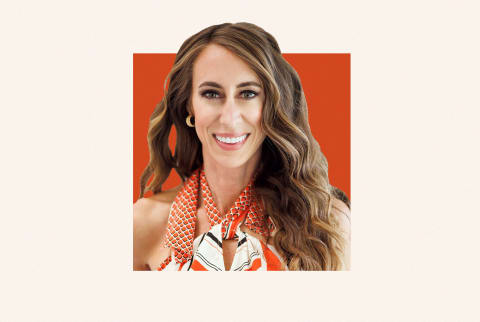Advertisement
3 Tips To Set Healthy Boundaries Around Diet Culture, Work-Life Balance & More


You heard it here first: Boundaries are the bedrock of well-being. According to Whole30 co-founder and CEO Melissa Urban, author of The Book of Boundaries: Set the Limits That Will Set You Free, every facet of well-being requires knowing your limits (with yourself and with others). "Think of boundaries as like a magical, golden thread weaving its way through all of the different pillars of wellness," she explains on this episode of the mindbodygreen podcast. "[It's] woven into the framework of your nutrition, of your exercise, of your sleep, of your self-care, of your spirituality. In order to preserve those practices, you need a healthy boundary."
Of course, it raises the question: How do you set healthy boundaries in your everyday well-being routine? Well, that's where Urban comes in—below, find her three essential tips for your boundary-setting practice:
Articulate them.
First things first: You can't expect others to respect your boundaries if you never articulate your needs. Setting boundaries can feel uncomfortable at first, but it's worth naming them for your mental well-being—and with a little practice, it will get easier and easier to have those conversations. In fact, you might even be surprised by how receptive people can be.
"I was shocked at how many people want to be good relationship partners and just don't know where your limits lie, because they're not mindreaders," notes Urban. "When you express them clearly and kindly and share how they will benefit you and the relationship, many of them will say, 'Yeah, happy to do that.' And isn't that a gift?"
Frame your boundaries around your own actions.
"Boundaries are not about telling someone else what they can or cannot do," says Urban. "A boundary is not designed to control someone else. A boundary is designed to let other people know what actions we are going to take to keep ourselves safe and healthy." For example, let's say you'd like to set boundaries with family members around diet culture conversations. "The boundary in this situation is not to tell your family, 'You can't talk about your diets anymore,'" says Urban. Rather, frame the boundary around how you participate in those conversations and offer an actionable solution.
You could say, "Just so you know, it makes me really uncomfortable when we talk about the food that's on our plate while we are eating. Can we not bring that subject of conversation up?" Or perhaps, "I'm not in a great place with my mental health when it comes to my body, so it would really be helpful for me if we chose not to talk about our bodies or our weight when we get together. Is that something you're willing to do?"
If that person is unwilling to respect the boundary after that, then you may need to set stricter boundaries in place. For example, if a family member keeps talking about diet culture, you could say, "It seems like we just can't eat together without this being a subject of conversation. So I'll come by after dinner." As Urban reminds us, "You're always focused on the actions that you are going to take on behalf of yourself (and perhaps your younger children) to keep you safe and healthy."
Pause before saying yes.
If you're looking for one effective practice to set healthy boundaries, simply "pause before saying yes to anything," says Urban. "Maybe it's just a moment for you to think, 'Is this glass of wine really worth it?' Maybe it's, 'Wow, that does sound fun, but I'm going to need to check my schedule and see what else we have going on that weekend.' Maybe it's, 'I appreciate you thinking of me for this business opportunity. Give me a few days to think about my capacity and I'll get back to you.'"
Whether you're looking to set boundaries with yourself or with others, incorporating a pause before making a decision can help you slow down, reflect on your values, and really assess the opportunity before diving right in. That way, you won't overextend yourself and put other people's needs ahead of your own. "Remind yourself that you're worthy of making the decision that is in your highest interest," adds Urban.
The takeaway.
Boundaries are crucial for well-being. Whether you're hoping to optimize your sleep, nutrition, exercise routine, or relationships, it's important to know your limits. "Call boundaries a supportive hammock for all of your wellness practices," adds Urban. "A magical, golden hammock."
We hope you enjoy this episode sponsored by Tom's of Maine! And don't forget to subscribe to our podcast on iTunes, Google Podcasts, Spotify, or Amazon Music!